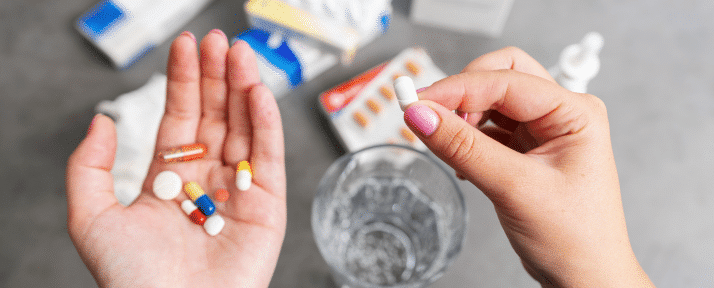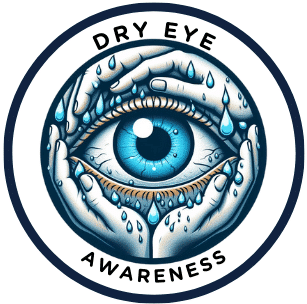
I’m going to kick things off with a clear look at what Dry Eye Syndrome (DES) really is. DES is that uncomfortable condition where your eyes can’t stay adequately moist. This might mean your tear glands are on a bit of a strike and aren’t producing enough tears, or perhaps the tears they do make just aren’t up to par quality-wise.
You’re going to find out about symptoms like a persistent dry sensation, stinging or burning in your eyes, a feeling as if something’s in your eye, and maybe a difficulty in facing a full day of screen time. For contact lens wearers, this can be particularly troublesome.
This isn’t just about the inconvenience of having to blink more often or reaching for the eye drops; it can really take a toll on someone’s quality of life. Imagine trying to focus on a task or enjoy an outing when your eyes are constantly uncomfortable. It’s a health issue that deserves attention.
A lot of factors contribute to DES, and it’s not always a straightforward cause-effect situation. Sure, things like the environment or aging come into play, but there’s also a significant connection to the medications you might be taking. And that’s really important because it’s an area where you have some control.
The Connection Between Medication and Dry Eye: What Patients Should Know
I’m going to talk about something that’s quite critical for anyone dealing with Dry Eye Syndrome: the impact of medication. It’s a lesser-known fact, but yes, medications can trigger or worsen dry eye symptoms. You’re going to find out about the interplay between certain drugs and your tear production.
That’s going to include a discussion on why it’s essential for you to go over your medication list with your doctor. I’m here to help you understand that medicating one condition doesn’t mean you have to suffer in silence with side effects like dry eyes. It’s about striking a balance between the benefits of your medication and the side effects, which includes understanding and managing issues like Dry Eye Syndrome.
In my opinion, one of the best things you can do is have an open dialogue with your healthcare provider. Express your concerns about dry eyes and ask whether your current or future medications can contribute to symptoms. Your provider might adjust your dose or suggest an alternative that’s kinder to your eyes without compromising treatment efficacy.
Don’t worry too much about having to face this alone. You can always adjust your approach down the road. At times, that might mean integrating lifestyle changes with your medication or exploring over-the-counter solutions. The goal is to ensure quality of life while effectively managing the health conditions for which the medication was initially prescribed.
Common Culprits: Medications Known to Induce Dry Eye Symptoms
If you’re facing the annoyance of itchy, burning eyes, your medicine cabinet could be to blame. Several common medications have been identified as potential triggers for Dry Eye Syndrome (DES). I’m going to shed some light on some of these.
Antihistamines are often the go-to remedy for allergies, but they work by reducing fluid, including the tears your eyes rely on for moisture. When the tear production declines, you might experience dry, scratchy sensations that indicate DES.
Blood pressure medications, specifically diuretics and beta-blockers, are also on the list. They reduce the fluid in your body to lower blood pressure, which can unintentionally impact tear production and lead to dry eye symptoms.
For those combating acne with treatments like isotretinoin, dry eyes can be an unwelcome side effect. This medication impacts the oil glands, which can include those around the eyelids that are essential for a healthy tear film.
Dealing with anxiety or depression is challenging, and the medications to help manage these conditions, including SSRIs, can also affect your eyes. These medications may alter the balance of neurotransmitters, which might affect tear production.
Remember, it’s critical to assess how your eyes feel when you start a new medication. You can always adjust your approach down the road, but being vigilant from the start can save you from discomfort later on.
Navigating Treatment: Strategies for Managing Medication-Induced Dry Eye Syndrome
I’m going to be candid about this: managing medication-induced Dry Eye Syndrome (DES) can sometimes be tricky, but you’re not without options. It’s about finding the balance between treating your underlying condition and maintaining eye comfort.
This isn’t just about treatment, it’s also about collaboration. I suggest you have open conversations with your healthcare provider about the side effects you’re experiencing. This dialogue is critical in exploring potential solutions together.
In my opinion, you should also consider some lifestyle tweaks to alleviate dry eye symptoms. Simple changes like taking breaks during screen time, staying hydrated, and using humidifiers can make a significant difference.
If the medications you’re taking are not crucial and alternatives are available, healthcare professionals might suggest making a switch. Sometimes, they might adjust the dosage as a less disruptive option to your established routine.

Don’t worry too much about this being a permanent issue. With advancements in medical science, new treatments and management strategies for DES are continually emerging. Stay informed and participate actively in your treatment decisions.
